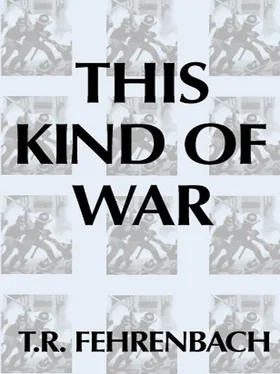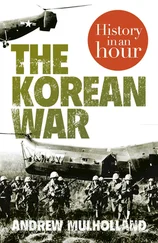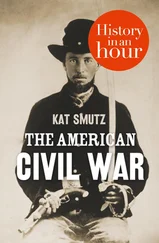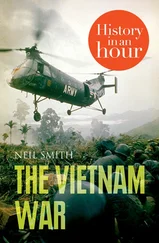A new discharge and rotation list had been published after VJ-Day, and almost all officers of the group, including the surgeon and dentist, and all but fifteen of the eighty enlisted men of Group Headquarters were eligible to go home. Only two officers of the Corps of Engineers branch would remain, with the exception of Jones himself, who was Regular Army, and not going anywhere.
Bill Jones, a stocky, square-jawed man with a moustache and thinning hair, protested the removal of his troops. How the hell was he going to get anything done, if all the trained men were sent home?
Up at Headquarters he was told that nothing, absolutely nothing—not the occupation, the surrender, or anything else—could take precedence over sending the boys home. The Regular Army, which was about two hundred thousand men, would have to carry on by itself. Congress had decided that the most urgent matter had come before it for four years was the question of whether some of the brass were nefariously plotting to keep a lot of men in uniform beyond their time.
Congress, and the American people clamoring behind them, needn't have worried. Most of the brass just sighed, and gave up.
The boys went home.
Colonel Jones received replacements, of course. He got officers from the Quartermaster Corps and the Infantry, and plenty of basic riflemen from the eighteen-year-olds just drafted, who didn't have Skill One, even for basic riflemen. Engineers he didn't get. Engineers, like most professional men, serve in the military only when the draft moves them.
With a Group HQ that didn't know a crowbar from a wrecking iron, and who thought a balk was part of baseball, Colonel Jones, as part of "Blacklist Forty" (code name for Korea), reported to General Hodge in Korea. Hodge sent him to Pusan, to take control of some three thousand engineer troops in the area. The engineers' mission was to construct housing for the United States occupation troops and otherwise furnish engineer support, after, of course, all the boys had been sent home.
These were days and weeks to break a career officer's heart. The United States Army, which had been the most powerful in the world, did not melt away in an orderly fashion. It disintegrated into a disorganized mob, clamoring to go home. Men who had come into the service three months before, now that the war was over, figured they should go home too. No one gave much thought to the work that had to be done.
Fortunately for Jones, the Jap soldiers in Korea waiting to be sent home were willing workers. Both Koreans, drunk with new liberation, and Americans, already mentally wearing civilian clothes, grew sullen at the idea of labor. The Japs, now that the Greater East Asia Co-Prosperity Sphere was gone, were affable, smiling, professional, and entirely helpful. Jones put them to work. Somebody had to get the job done.
Eventually, though, all the Japs had to be repatriated. They took with them, when they left, every military officer, every professional man, every engineer, bank teller, and executive in the Pusan area. They left behind a hell of a mess.
Like most Americans, Colonel Jones was not prepared to take Chosun. The appalling poverty, the dust, dirt, filth, and eternal clamor of Pusan repelled any man accustomed to the West. Orphan children, with running sores, lay in the streets. Society, with the iron Japanese hand gone, was in dissolution. Money was worthless, since the Japanese had printed billions of yen prior to the surrender and passed it out to all who wanted it. Almost all responsible Koreans, particularly the educated were—rightly—tarred with the collaborationist brush.
Yangban , in conical hats, white robes, graybearded and wise with years, got roaring drunk and staggered through the streets. Women and children fell beside the roads, and died, ignored by both authorities and passersby. Jones saw one old woman try to cross a street of Pusan against the orders of the traffic policeman on duty. The cop pushed her back and knocked her down. Nobody bothered to help her up.
Forty years of slavery and brutality could not be brushed aside in a month, or in a year. Military Government had a hell of a situation on its hands, Jones realized.
He never got used to the stink. Inside the city, the odors were of decaying fish, woodsmoke, garbage, and unwashed humanity. Outside, the fresh air was worse. Koreans, like most Orientals, use human fertilizer. Their fields and paddies, their whole country smells somewhat like the bathroom of a fraternity house on Sunday morning.
Clothing washed in their rivers turns a sickly brown.
But slowly, holding their noses, the officers of the Occupation and Military Government tried to get things organized. None of them had had any experience with the job, or with Orientals. In Germany, or even Japan, the problem was much easier. There were, after all, skilled people to call upon, once the formality of Denazification was over.
In Korea, there were no trained administrators for either government or business, regardless of their politics.
Colonel Jones became acquainted with the complexities of Korean politics only indirectly. As an engineer, he became responsible for fire fighting in Pusan, and he noticed a great number of fires were breaking out. He asked a Korean fireman about this.
"Oh, it is the different factions, setting each other's houses afire," the Korean answered cheerfully. With most of Pusan constructed of wattle with tile roofing, Colonel Jones soon had his hands full.
Once he attended a fire personally. He saw the Korean firemen, with high courage, battling the flames with their old Jap equipment. Then, close by, he heard screams.
He turned, and saw several firemen and a policeman torturing a Korean. He ran over. An American major touched his sleeve. "Don't interfere with them, Colonel. They're trying to solve who set the fire!"
Later, one of his trucks ran down a Korean child. The officer he sent to investigate reported that the family was unconcerned. Life was hard and bitter and apt to be short, and now there was one less mouth to feed.
He soon learned to use Korean guards for U.S. military stores. The Koreans were desperately poor, and would steal anything, even if nailed down—nails had commercial value—but American sentries would not willingly shoot down women and boys carrying off gas cans and water buckets. Not after they had killed two or three, anyway—they lost all heart for it. But Korean guards would shoot or beat hell out of the thieves, if they caught them. By using Korean guards, the U.S. saved money.
Because he was a sincere, conscientious man, Colonel Jones of Illinois did the best he could. But he never learned to understand the people of Chosun, and he felt, reluctantly, that any hope for real democracy on the American pattern in that land was wishful thinking.
But he didn't know what to do about it, and he was glad when his time came in early 1946, and he, like the boys a year before, went home.
Captain Edward H. Landers, Infantry, arrived at Inch'on, Korea, in 1946. He went to XXIV Corps at ASCOM City, between Seoul and Inch'on, as Troop Information Officer. Tall, slow-talking, he was an Army brat, born in old Fort Dupont, in Delaware.
ASCOM City had been built by the Occupation Forces, and was the center of the Army Service Forces in Korea. From the first, Captain Landers didn't like it. But that was nothing startling—nobody in his right mind liked being in Korea.
The summers were hot and dusty, or hot and rainy, with hundred-degree temperatures. The winters were Siberian. The country literally stank, except for the few months during which the ground stayed frozen.
Nor did Captain Landers like his job. Nobody cared much for Troop Information. You had to watch what you said, or somebody wrote to Congress. Landers, a sincere man, felt about as useful as the proverbial appendages on a male pig.
Читать дальше












